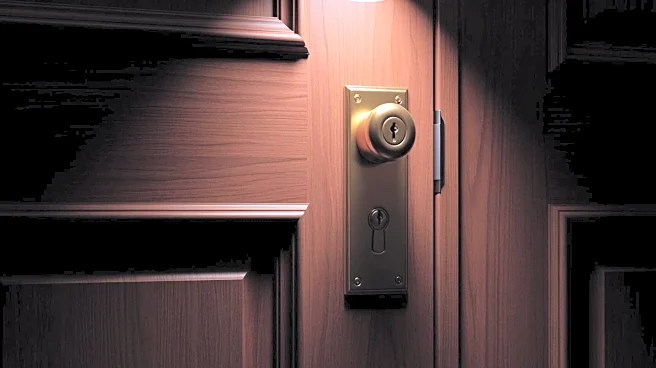What's Happening?
The U.S. Senate's attempt to pass a stopgap funding bill to end the partial federal government shutdown failed on October 16. The shutdown, which began on October 1, continues as the bill was defeated
in a 51-45 vote, falling short of the 60 votes required for passage. The proposed measure aimed to restore government funding until November 21. The shutdown is primarily due to disagreements over healthcare funding and tax credits related to the Affordable Care Act, commonly known as Obamacare. Democratic lawmakers are pushing for the extension of subsidies before the enrollment period begins on November 1, and they seek assurances from the White House against unilateral cancellation of agreed spending.
Why It's Important?
The ongoing government shutdown has significant implications for federal operations and services, affecting various sectors including healthcare, public safety, and economic stability. The deadlock over healthcare funding and tax credits impacts millions of Americans relying on Affordable Care Act subsidies. The failure to pass the stopgap bill highlights the deep partisan divide in Congress, with potential consequences for public trust in government institutions. The shutdown also poses risks to economic growth, as prolonged federal closures can disrupt business operations and consumer confidence.
What's Next?
The shutdown will persist until a compromise is reached on the contentious issues or until the Senate secures the necessary 60 votes to pass a funding extension. With the GOP holding a 53-47 majority, bipartisan cooperation is essential to resolve the impasse. Lawmakers are under pressure to negotiate a deal that addresses healthcare funding and other disputed matters. The situation remains fluid, with potential for further legislative attempts to end the shutdown.
Beyond the Headlines
The government shutdown underscores the challenges of governance in a polarized political environment. It raises ethical questions about the prioritization of political agendas over public welfare. The impasse may lead to long-term shifts in legislative strategies and influence future negotiations on critical policy issues.









